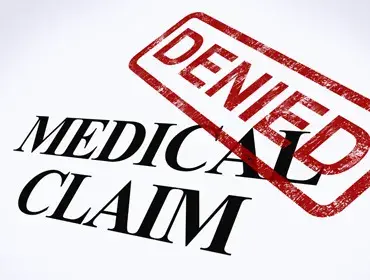Healthcare providers and medical coding companies had a one-year grace period for ICD-10-coded medical claims. According to a recent report in Physicians Practice, claims statistics showed improvement in Q4 2016 after the end of the ICD-10 grace period in October 2016. The data pertaining to total claims processing time, number of denied claims, and the speed in which providers are paid had improved in Q4 2016 compared to Q4 2015. The report lists the top reasons for medical claims denial as:
- CO 97 – The benefit for this service is included in the payment/allowance for another service/procedure that has already been adjudicated
- CO 18 – exact duplicate claim/service
- CO 16 – claim/service lacks information or has submission/billing errors
- CO 96 – non-covered charges
- CO 24 – Charges are covered under a capitation agreement or managed care plan.
Let’s see what each of these denials implies and how to address them.
- CO 97 – The benefit for this service is included in the payment/allowance for another service/procedure that has already been adjudicated: This indicates that the denied/reduced service or procedure is not paid separately. The patient should not be billed as the pre/post op care is included in surgery. Denial implies that the services were bundled and have already been made as part of another service billed for the same date of service. This type of claim denial can be avoided by:
- Paying attention to National Correct Coding Initiative (NCCI) edits which ensure that the most comprehensive codes, are billed
- Applying appropriate modifiers to surgical codes when billing Medicare for split care – there are separate modifiers to indicate that pre- and intra-operative services, post-operative management services only, and pre-op services only, were performed.
- Being aware that some services are always be bundled into other services provided or not separately payable, for instance, evaluation and management (E/M) services conducted during the post-op period of a surgery that are related to the surgery, and collection of a blood specimen during a patient encounter.
The claim can be resubmitted by applying the correct modifier if applicable. Only the corrected line should be resubmitted and not the entire claim.
- CO 18 – exact duplicate claim/service: This denial occurs when a service that performed only once is billed twice. This can happen due to various reasons:
- The service was performed more than once by the same provider, or group of providers, on the same day.
- The service was performed by another provider, who is not part of your practice or group, on the same day as you provided the service, and that provider has already been reimbursed.
- The claim was submitted a second time
- Your medical billing company did not post the payment to the system though the payment was made
- The service was performed bilaterally leading to payment for one side and denial of the other
To address the issue of “exact duplicate claim/service”, providers should verify the documentation to ensure that the service was performed once and that payment has already been made and posted for it. If the procedure was repeated on the same day by the same physician, modifier 76 the corrected claim can be resubmitted after appending modifier 76. If modifier 76 appended to the duplicate service and the claim is still denied, an appeal letter may be submitted to the insurance with a copy of both reports to prove they are not duplicate services. In reliable medical billing companies, the team will contact the payer to ascertain the status of the denied claim and if necessary, resubmit it in a timely manner.
- CO 16 – claim/service lacks information or has submission/billing errors: CO 16 indicates that the claim lacks information necessary for Medicare to process it. Common reasons for CO16 denial include: billing for place of service 31 (Skilled Nursing Facility) and not providing the facility’s address on the claim, erroneous date span, and missing the LT (left) or RT (right) modifier. Such denials can be fixed by making the appropriate corrections or changes in the information and resubmitting the claim.
- CO 96 – non-covered charges: This means that the services are not a covered benefit under the provisions of the patient’s insurance plan. Providers are required to determine if the services they are providing a beneficiary meet medical necessity criteria under the Medicare program. They should inform patients when their services may not be covered. The Advanced Beneficiary Notice (ABN) informs the beneficiary that Medicare may not consider the services medically necessary and therefore will not reimburse it. The patient should be made to sign the ABN form before the service is provided. If the physician’s office has a signed, valid ABN on file and receives a Medical Necessity denial for services, the patient can be billed for the services indicated. Insurance authorization companies verify patient coverage before services are provided so that physicians can avoid this type of denial.
- CO 24 – charges are covered under a capitation agreement/managed care plan: This reason code is used when the patient is enrolled in a Medicare Advantage (MA) plan or covered under a capitation agreement. This claim should be submitted to the patient’s MA plan. Insurance eligibility verification prior to submitting claims to Medicare is crucial to avoid this denial reason. Insurance verification specialists perform such checks before services are provided. They check patients’ insurance cards and verify if they have recently enrolled in any new health insurance plans.
Reliable medical billing companies keep a close watch on trends in claims denials, which may change over time. They work closely with physicians’ offices to minimize denial rates and lost reimbursement. With their vast experience in working with Medicare and private insurance, they help providers collect unpaid claims and maximize return on investment (ROI).




